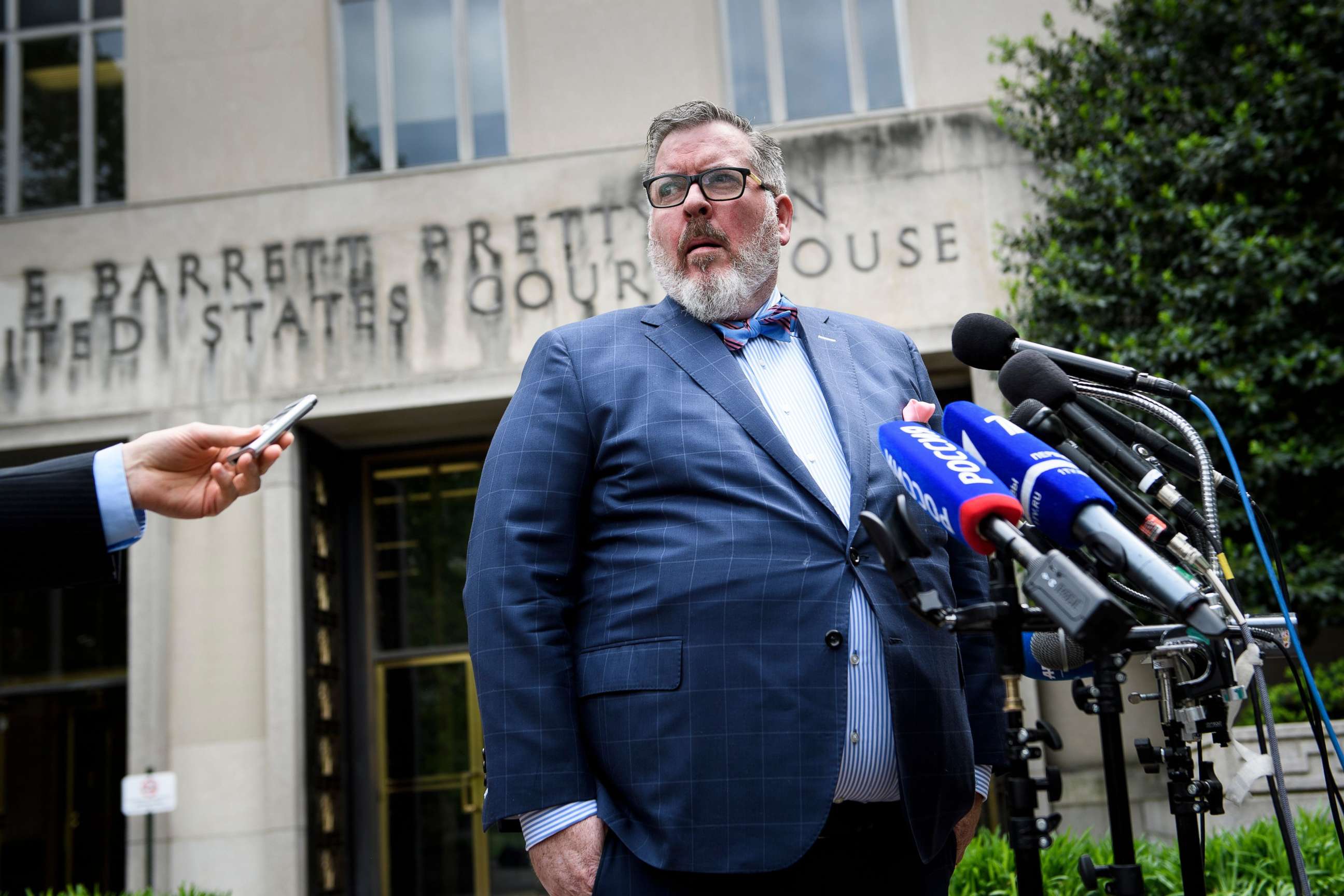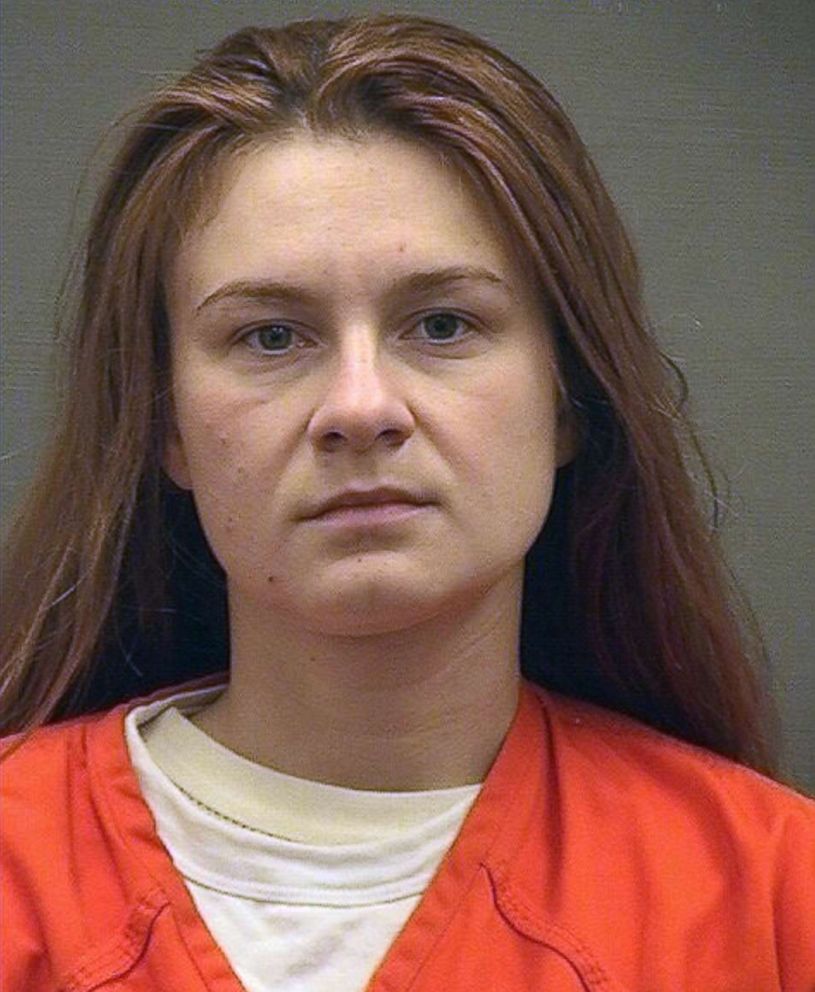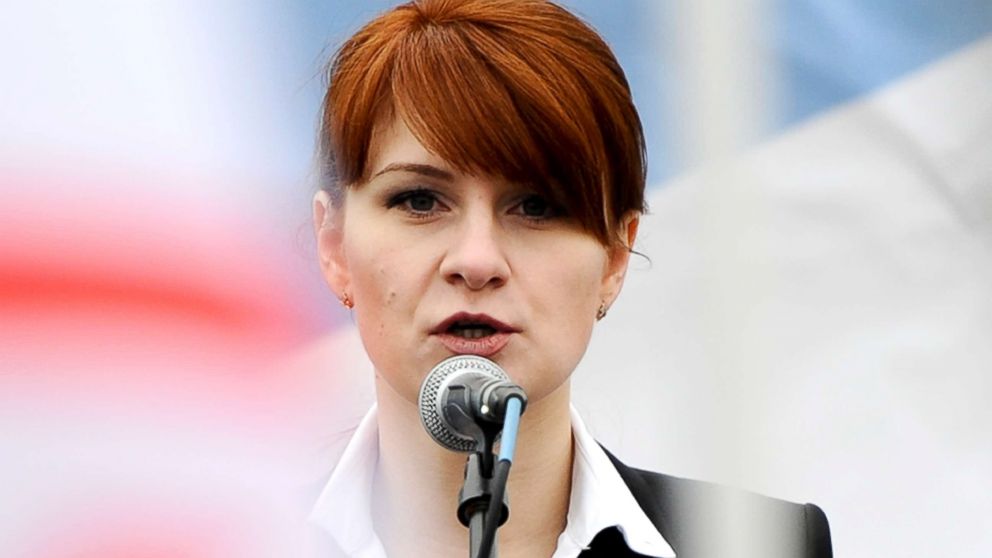Maria Butina, accused Russian agent, sentenced to 18 months in prison, deportation
Maria Butina, a 30-year-old Russian gun rights activist who pleaded guilty in December to conspiracy to act as a foreign agent, was sentenced to 18 months in prison on Friday and will be subject to deportation upon her release.
After months of debate between the government and the defense over the nature and seriousness of Butina's crime -- and one emotional courtroom plea from Butina herself -- it was Judge Tanya Chutkan of the U.S. District Court for the District of Columbia who had the final word.
Butina struck a remorseful note in her prepared remarks to the judge, begging for "mercy" and "the chance to go home and restart [her] life."
"I came to the United States not under any orders, but with hope, and now nothing remains but penitence," Butina said. "If I had known to register as a foreign agent, I would have done so without delay. I never lied or held secrets. I never injured someone or committed other crimes. I just didn't register because I didn't know to."
Judge Chutkan noted Butina's "absolute sincerity" in expressing regret and acknowledged her "substantial assistance" in her cooperation with the government but ultimately determined the case was based on more than Butina's failure to register as a foreign agent with the attorney general. She was "seeking to collect information about individuals and organizations that could be helpful to the Russian government," the judge said, at a time when Russia was acting to influence the U.S. electoral process.
The sentence matches the government's recommendations as outlined in the pre-sentencing filings. Butina has been incarcerated since her arrest in July of last year, and her time served will be deducted from her sentence, so she could be eligible for release in late 2019 or early 2020.
Butina's defense attorney Robert Driscoll told reporters assembled outside the courthouse that he "disagrees strongly" with the judge's decision and that foreign nationals living in the United States should be "exceedingly concerned" by what he called the government's "extremely broad interpretation" of the law.

The case generated headlines around the world since Butina, a recent graduate of American University, was arrested in July and accused of developing a covert influence operation in the United States designed to further the interests of the Russian Federation.
Butina, prosecutors said, had ensnared an unnamed "U.S. Person 1" -- which sources have identified as longtime Republican operative Paul Erickson -- in a "duplicitous relationship," using him for cover and connections and working with him "to arrange introductions to U.S. persons having influence in American politics," including high-ranking members of the National Rifle Association and organizers of the National Prayer Breakfast, that would ultimately give her a surprising level of access to conservative politicians.
Most notably, Butina's Russian gun rights group "Right to Bear Arms" hosted a delegation of former NRA presidents, board members and major donors in Moscow in 2015, where she appears to have succeeded in arranging a meeting between NRA insiders and Russian Foreign Minister Sergey Lavrov, raising the prospect of a discussion between conservative political operatives and a powerful member of Russian President Vladimir Putin's inner circle in the midst of a presidential campaign.
Butina initially pleaded not guilty to charges of conspiracy and failure to register as a foreign agent, but she later agreed to plead guilty to conspiracy and cooperate with federal, state and local authorities in any ongoing investigations.
She admitted, as part of the deal, that she and Erickson "agreed and conspired, with a Russian government official ('Russian Official') and at least one other person, for Butina to act in the United States under the direction of Russian Official without prior notification to the Attorney General."
Based on the description, the "Russian Official" appears to be Alexander Torshin, deputy governor of the Russian Central Bank and a close ally of Russian President Vladimir Putin. Under his direction, the agreement said, she "sought to establish unofficial lines of communication with Americans having power and influence over U.S. politics."

It is unclear what Butina's cooperation might have entailed, but federal prosecutors in Washington have reportedly notified Erickson, who was indicted on wire fraud and money laundering charges in South Dakota in February, that he is also the target of a separate investigation.
After the deal, however, the government and the defense were rarely in agreement, as they offered opposing theories of the case ahead of her sentencing.
Butina's lawyers, seeking leniency, portrayed her offense as one of ignorance, a crime of curiosity committed by an ambitious recent graduate. Two dozen character letters -- submitted to the court from family, friends and an array of former associates both in the United States and Russia -- attested to her idealism and naivety.
The government, on the other hand, connected her activities to "Russia's broader scheme to acquire information and establish relationships and communication channels that can be exploited to the Russian Federation's benefit," actions that "had the potential to damage the national security of the United States."
Butina might not have been a trained intelligence officer operating as "a spy in the traditional sense," the government said, but rather a so-called "access agent," capable of "spotting and assessing" individuals who "have the ability to influence policy in a foreign power's favor."
"Acquiring information valuable to a foreign power does not necessarily involve collecting classified documents or engaging in cloak-and-dagger activities," prosecutors said. "[Her activities] could form the basis of other forms of intelligence operations, or targeting, in the future."
The argument sparked outrage from Butina's defense attorneys, who accused the government of employing "sandbag tactic[s]" in the "metaphorical bottom of the ninth inning," but it appeared to make a significant impression on the judge, who called Butina's conduct "sophisticated" and "dangerous."
This was not a "misunderstanding," the judge said. She was collecting information, the judge said, "for Russia's advantage."
ABC News' Alexandra Svokos contributed to this report.




